Try these 32 foods to eat after menopause, to protect your body for the future
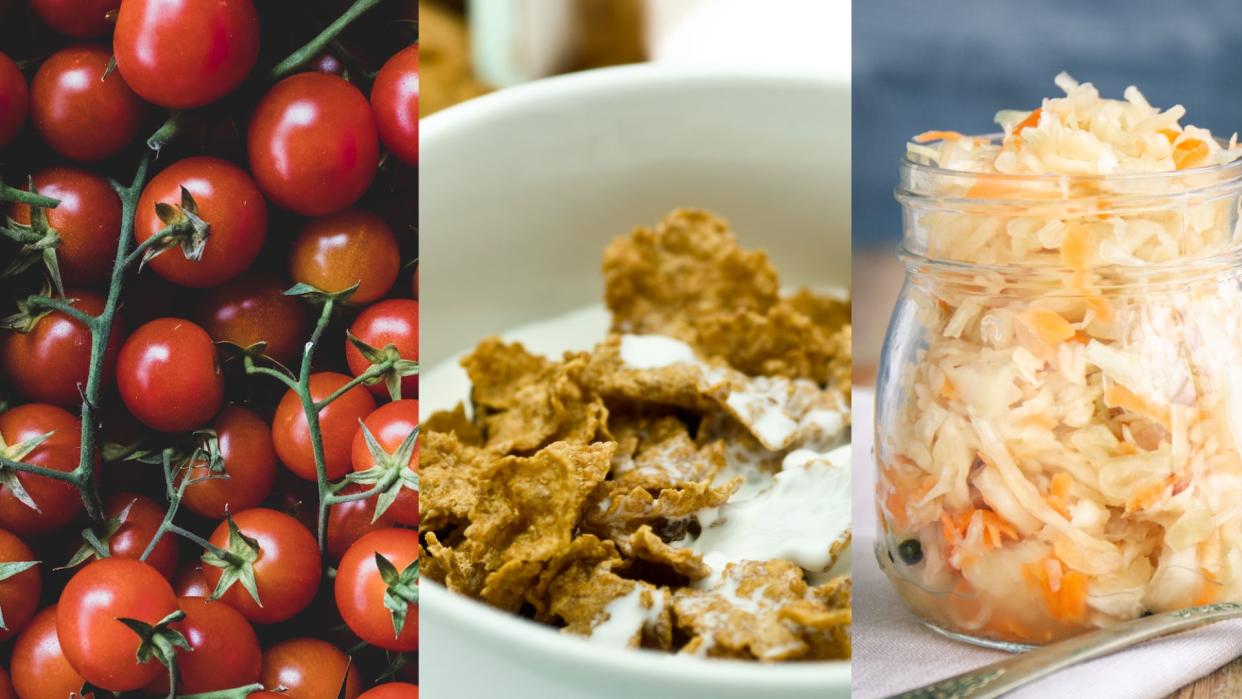
You probably haven't thought much about foods to eat after menopause. With the focus on looking after female health during this important transitional time, it can be easy to forget that nutrition is just as important once hormone levels have settled.
Indeed, after this life stage, women remain at an increased risk for several health conditions due to the permanent drop in oestrogen levels. Maintaining a healthy, balanced diet becomes crucial for bone as well as heart health, along with weight management and cognitive function, while also balancing out mood.
As such, eating well during this midlife period is key not just for looking after physical and mental wellbeing in the present, but also for protecting your body for the future. We've compiled the best nutrient-dense whole foods to add to your shopping list...
32 foods to eat during menopause
1. Avocado
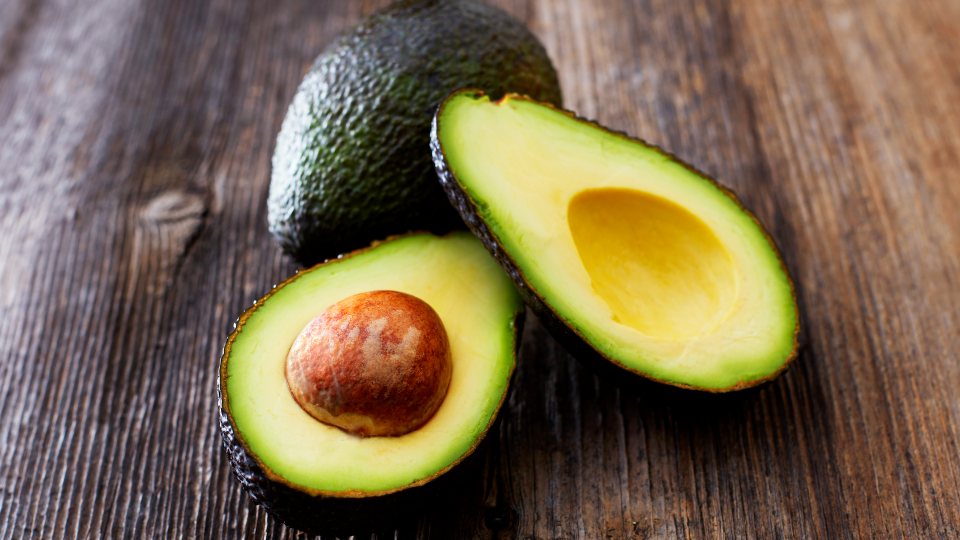
Avocado packs a nutrient-dense punch ideal for post-menopausal needs. The fruit serves up heart-healthy monounsaturated fats, fibre, potassium to control blood pressure, vitamin K for bone health, and antioxidants like vitamin E that may aid cognitive function. Add to toast or throw in a salad.
2. Kale
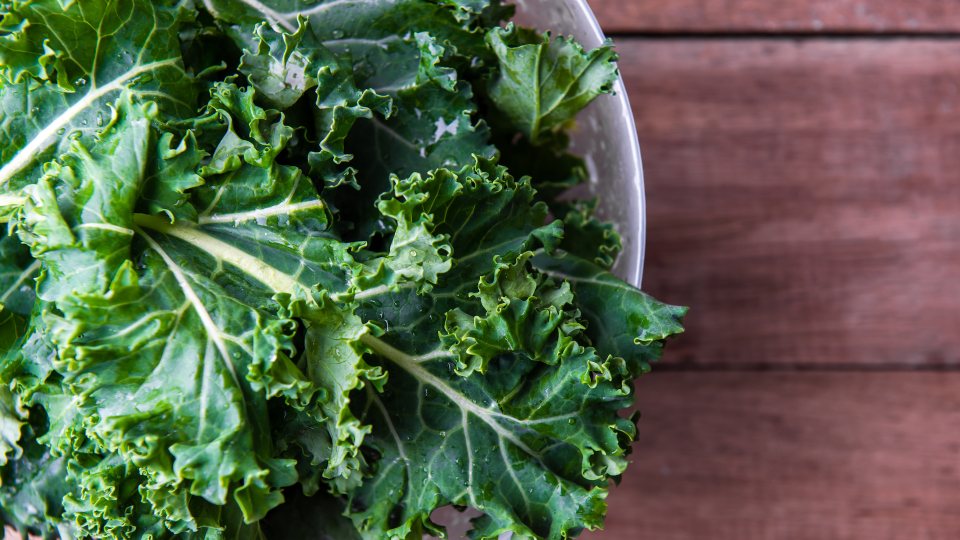
Leafy greens like kale are important for women's diets after the menopause. The vegetable is packed with calcium and vitamin K for bone health, folate for cognition, vitamin C as an antioxidant, and fibre for digestion. What's more, it is low-calorie and filling, making it ideal if healthy weight management is your goal.
3. Chia seeds
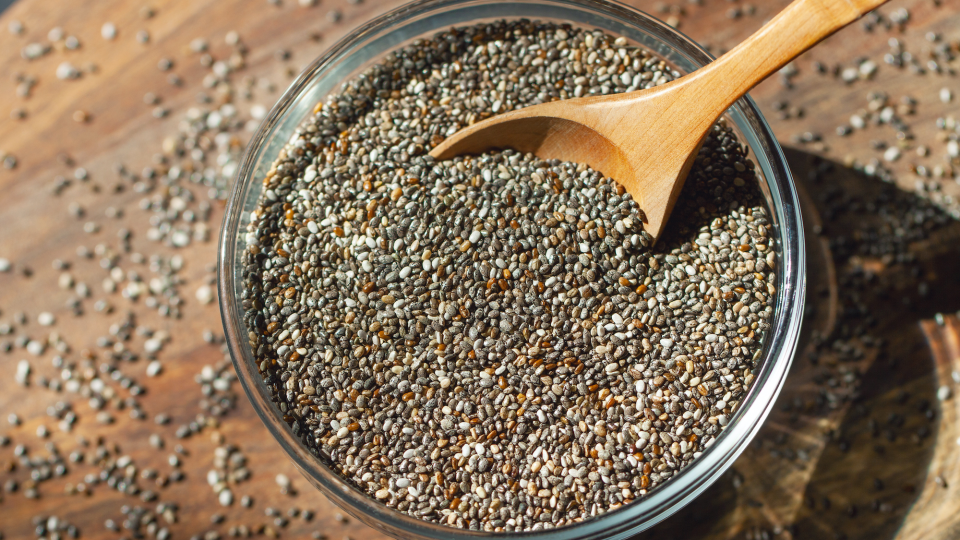
Chia seeds are tiny nutritional powerhouses post-menopause. Just a small serving provides plenty of fibre for digestion, calcium for bone health, omega-3s for the heart and brain, protein for muscle, and antioxidants to reduce inflammation. Sprinkle them on yoghurt or soak them overnight for chia seed pudding.
4. Almonds
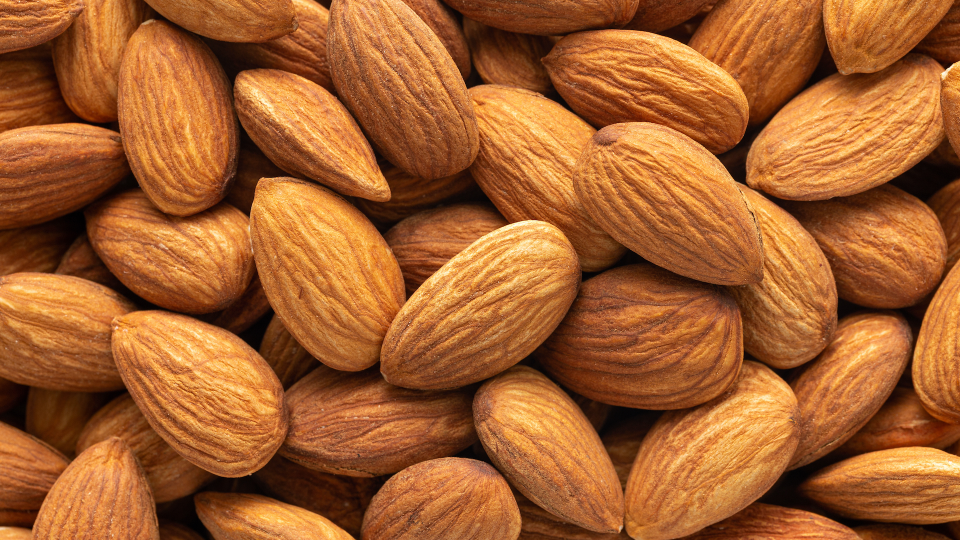
After a nourishing snack for on-the-go? A handful of almonds provides heart-healthy fats, fibre for digestion, plant protein for muscle health, calcium for bone strength, and vitamin E as an antioxidant for cognitive support. You can also sprinkle the nut on yoghurt or add it to baking recipes.
5. Chicken
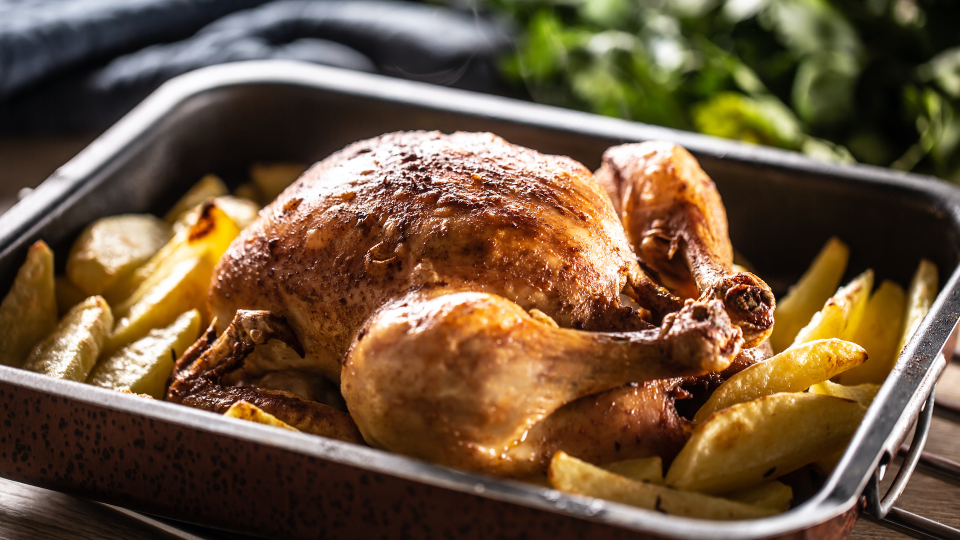
Chicken is a smart idea if you're unsure what to have for dinner. It provides plenty of lean protein that will preserve muscle mass and enhance satiety, as well as selenium for reducing inflammation, niacin for brain health, and vitamin B6 for energy. It is also an incredibly versatile ingredient - roast it at the weekend, or consume it in a salad or sandwich for weekday lunches.
6. Plums
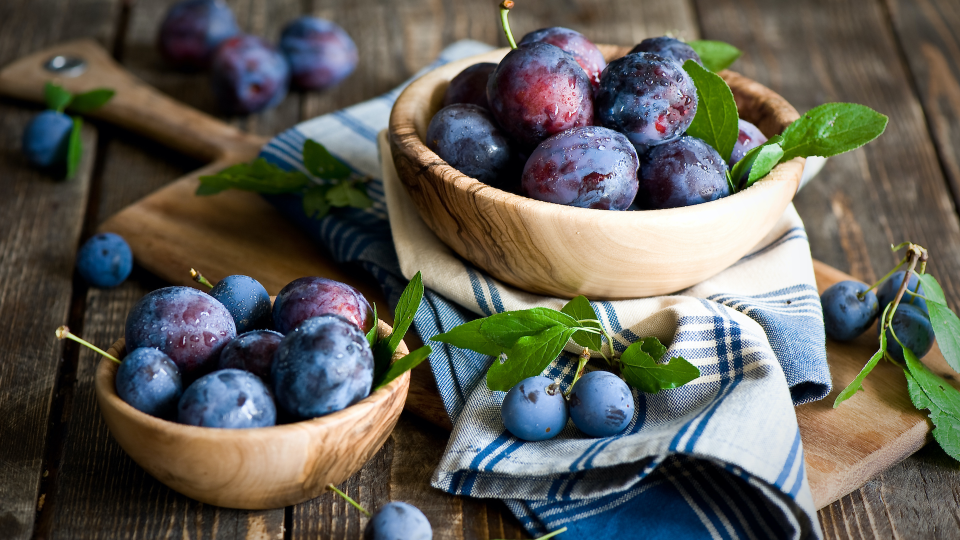
Mix things up in the fruit department by opting for plums. They are ideal for post-menopause nutrition, being high in fibre for good digestion and fullness. Additionally, the fruit contains vitamins C and K for immunity and bones, potassium for blood pressure, and anti-inflammatory antioxidants. Enjoy them fresh on their own, or add them to a crumble for a nourishing sweet treat.
7. Apples
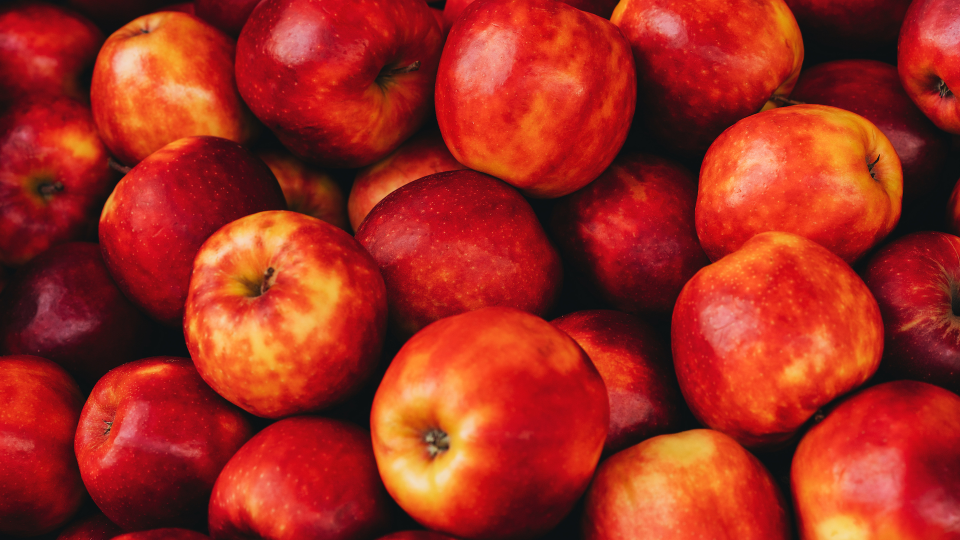
Apples are a nutritious addition to your grocery shop, whatever life stage you are at. However, there are many nutritional qualities that make them important in midlife - including lots of fibre for digestion, vitamin C for immunity, potassium for blood pressure, and polyphenol antioxidants that reduce inflammation.
8. Berries
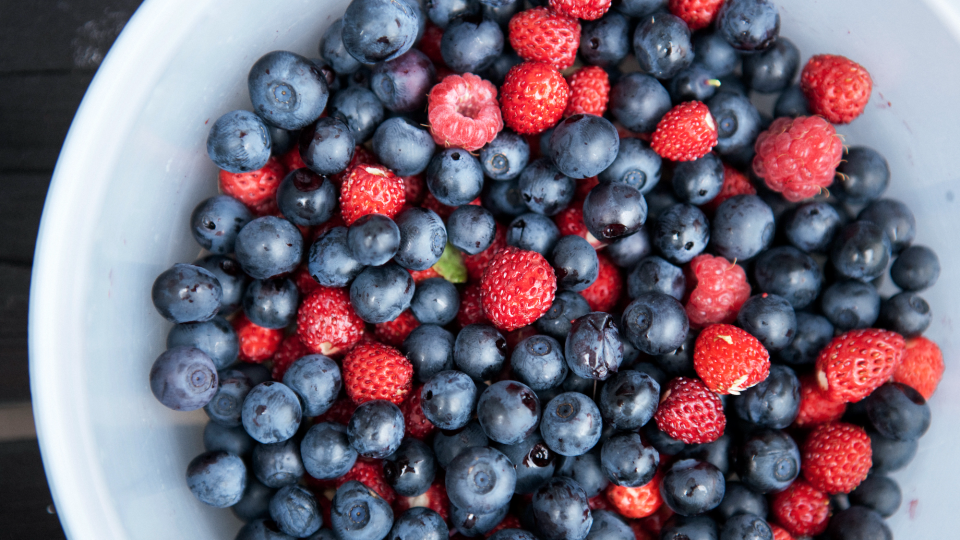
A handful of berries makes a juicy snack on its own or a yummy yoghurt topping. However, further still, the fruit can pack a nutritional punch post-menopause. There's fibre for fullness and digestion, vitamin C for immunity, manganese for bone health, and antioxidants - which studies have linked to a reduction in inflammation and disease risk.
9. Grapes
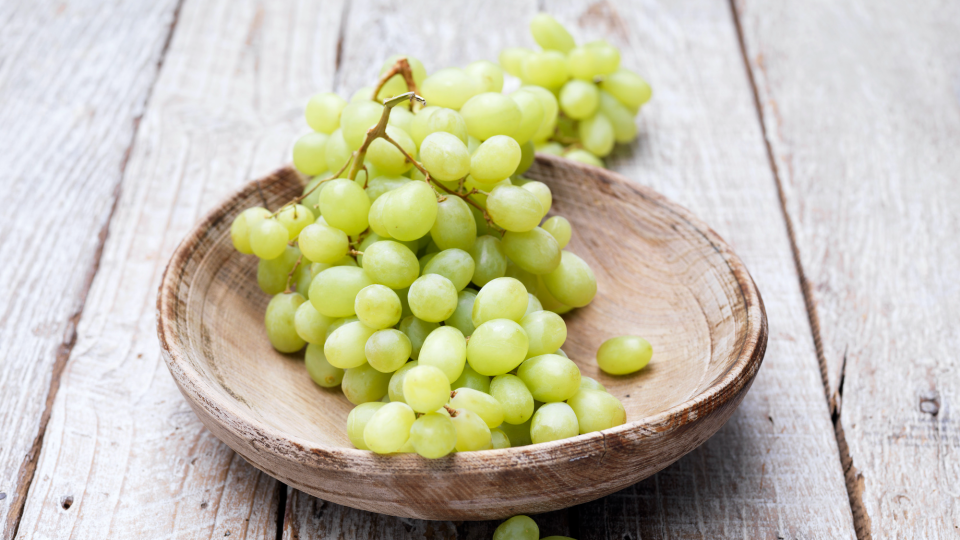
Grapes deliver fibre for digestion and satiety, vitamins and manganese for bone health, along with anti-inflammatory antioxidants. Their low-calorie content plus high nutrient density makes them an ideal snack post-menopause.
10. Cereal
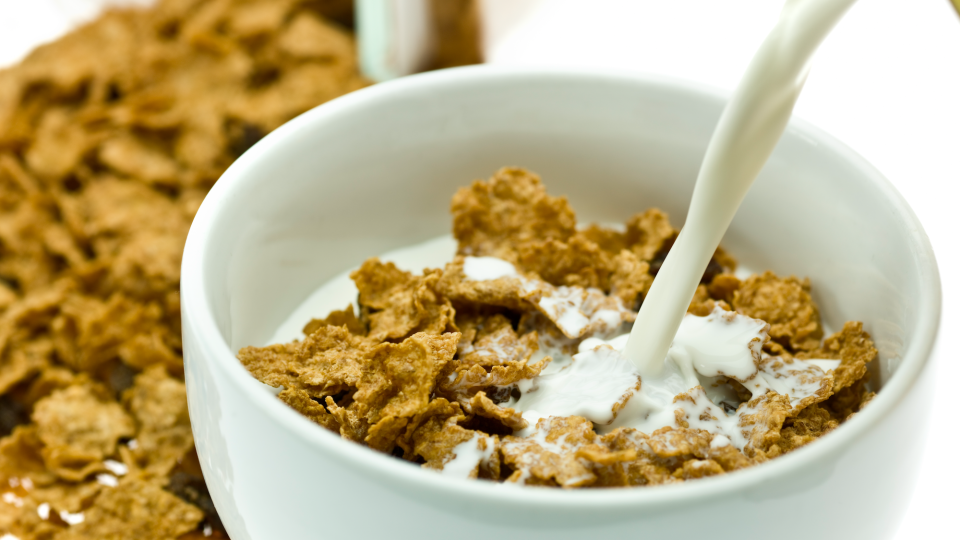
A bowl of cereal can serve up fibre for good digestion and fullness, as well as calcium and vitamin D for bone health. The breakfast staple also often contains iron to prevent anaemia, and B vitamins for energy and cognition post-menopause. However, not all cereals are created equal - it's important you choose a variety that is vitamin-fortified, high-fibre and whole-grain to provide a nutrient-dense start to the day.
11. Broccoli
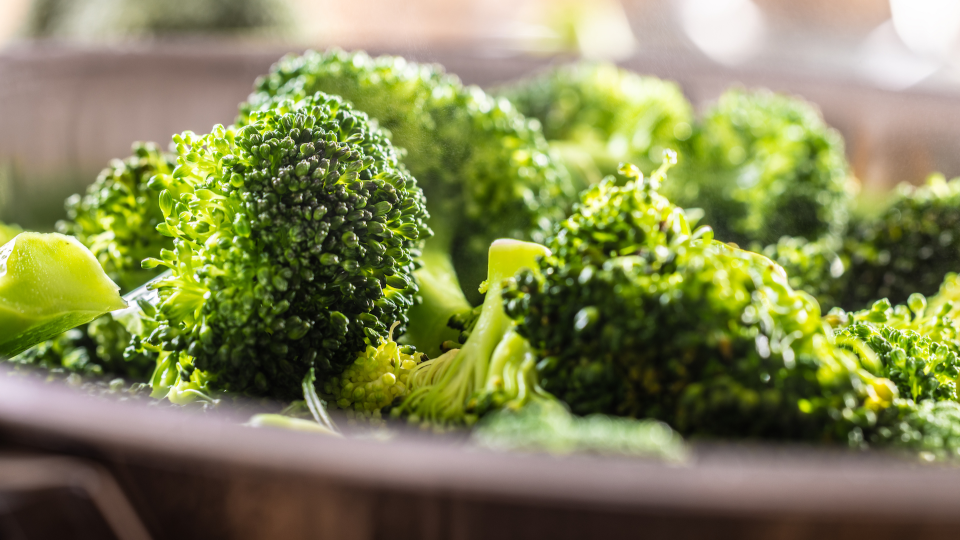
Broccoli is high in calcium and vitamin K, which are crucial for maintaining bone health and preventing osteoporosis, a common concern after menopause. The vegetable also contains significant amounts of fibre, which aids in digestion and helps maintain a healthy weight. Additionally, it is a good source of antioxidants and phytonutrients, including sulforaphane, which can help reduce inflammation.
12. Kefir
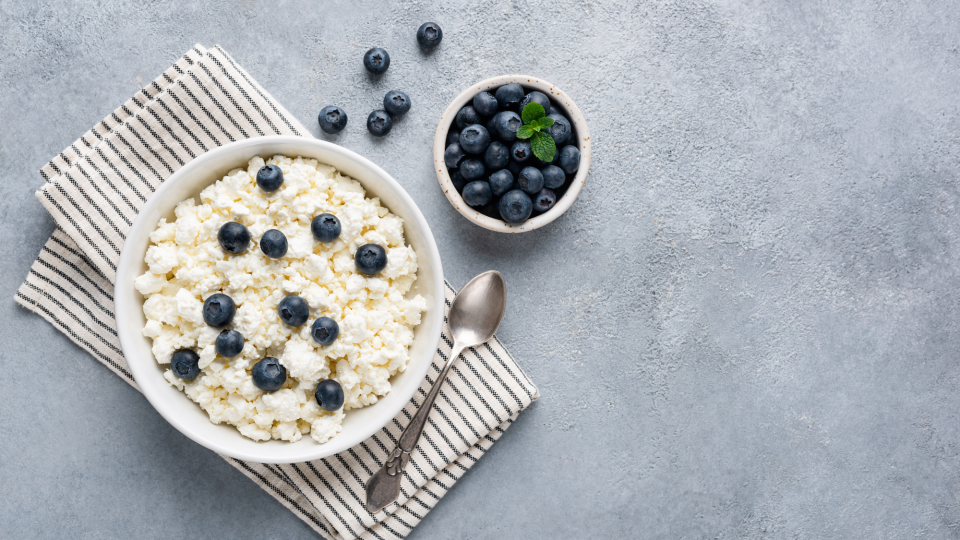
You may know kefir best as a gut-friendly food, but it's also particularly helpful after the menopause. It is a great source of calcium and vitamin D, both of which are essential for maintaining bone density and reducing the risk of osteoporosis, and it also contains probiotics - which promote that aforementioned gut health - enhance digestion and boost the immune system.
13. Strawberries
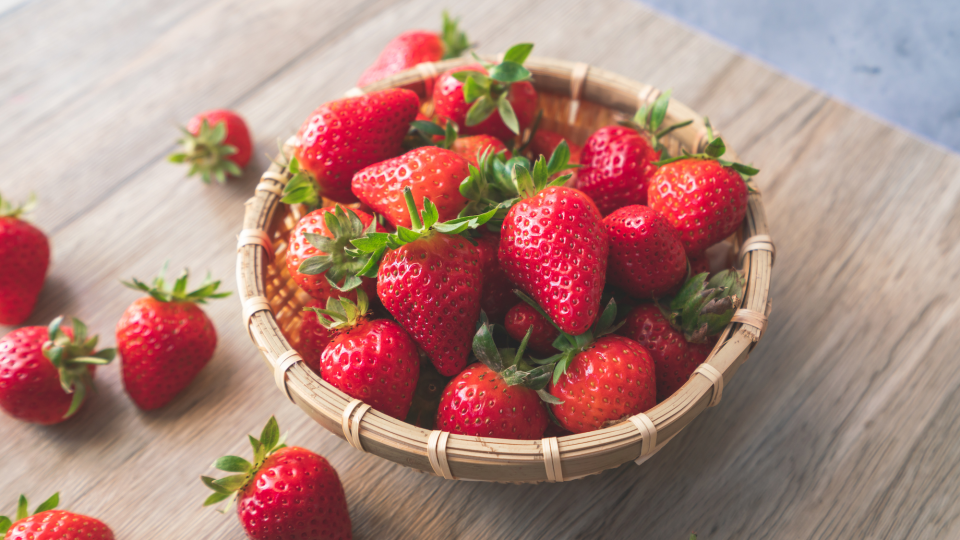
Strawberries are rich in antioxidants like vitamin C, which supports immune function and skin health. The fruit also provides plenty of fibre, aiding in digestion and helping to maintain a healthy weight. Additionally, the high levels of folate and potassium contribute to heart health by helping to regulate blood pressure.
14. Tomatoes
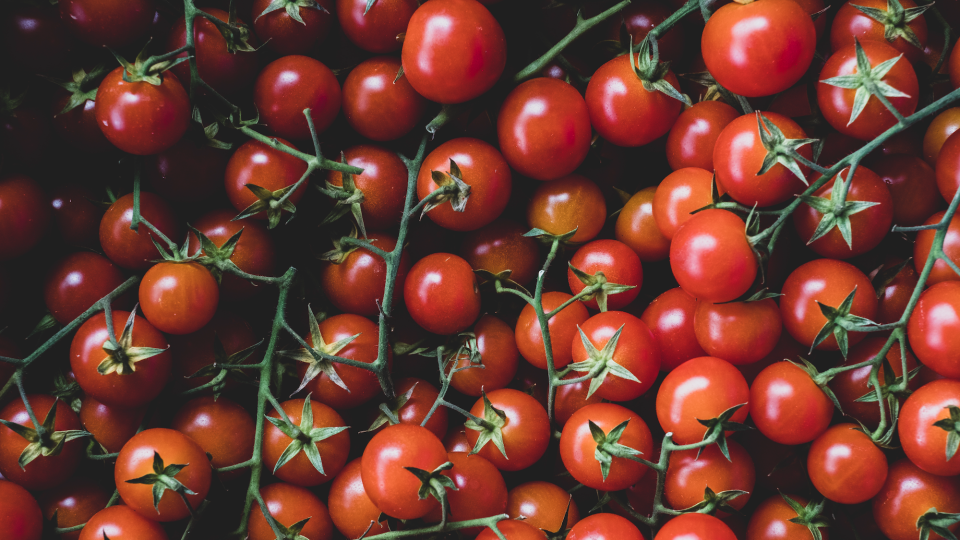
Add tomatoes to your meals where possible. They are high in antioxidants, particularly lycopene, which can help reduce the risk of chronic diseases such as heart disease and certain cancers, and also serve up plenty of vitamin C - which supports immune function and skin health- and potassium, which aids in regulating blood pressure.
15. Sauerkraut
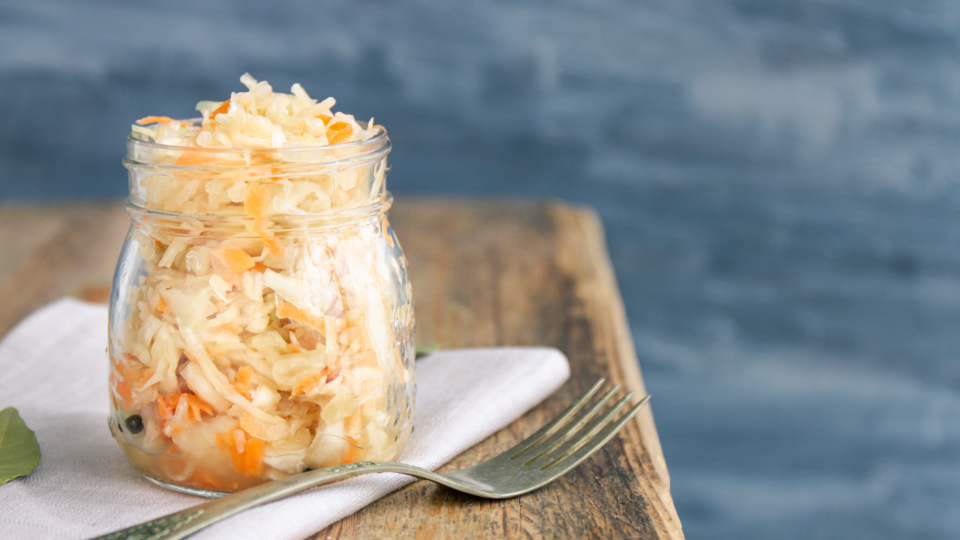
Sauerkraut is high in probiotics - which support gut health, enhance digestion, and boost the immune system. The popular fermented food is also a good source of vitamin K, essential for bone health and preventing osteoporosis, which is a common worry after menopause. Additionally, it provides vitamin C, which aids in collagen production and skin health.
16. Chickpeas
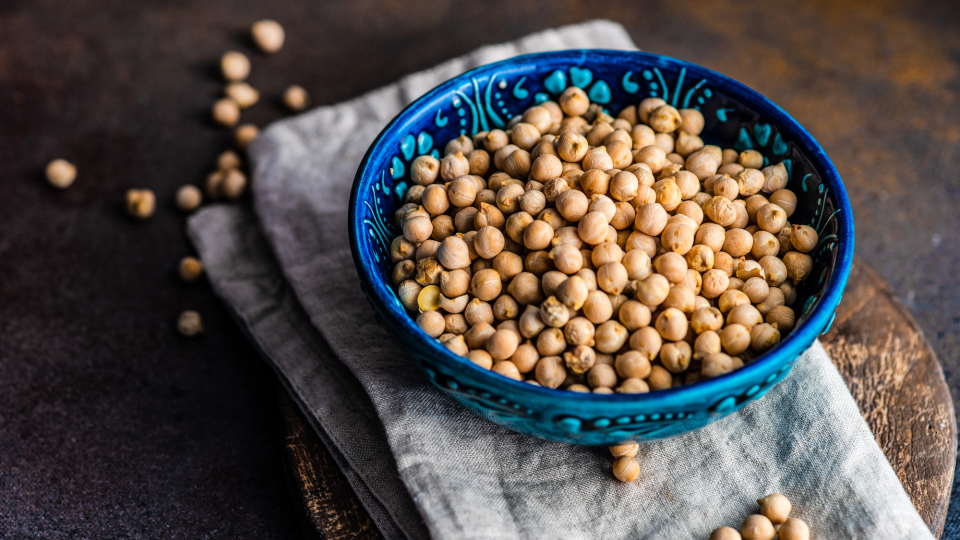
Whether whipped up into hummus or added to a stew, chickpeas should become a regular in your dishes. The nourishing pulse is high in protein and fibre - which help maintain muscle mass, support digestion, and promote a feeling of fullness, aiding in weight management. It is also a good source of calcium, magnesium and phosphorus, which are essential for bone health and preventing osteoporosis.
17. Oats

Oats, which can be consumed in porridge for a warming breakfast, are high in soluble fibre - particularly beta-glucan - which helps lower cholesterol levels and supports heart health. They also provide complex carbohydrates, which help maintain stable blood sugar levels, reducing the risk of type 2 diabetes.
18. Juice

Look out for orange juice fortified with vitamin D. The nutrient is essential, alongside calcium, for maintaining bone health and reducing the risk of osteoporosis. Additionally, the drink contains naturally high levels of vitamin C - which supports immune function and collagen production, promoting skin health - and the addition of folate aids cell regeneration and heart health.
19. Quinoa

Quinoa is a complete protein - containing all nine essential amino acids - which helps maintain muscle mass and overall metabolic health. The grain is also high in fibre, promoting healthy digestion and aiding in weight management. It also provides significant amounts of magnesium and phosphorus, essential for bone health and reducing the risk of osteoporosis.
20. Brown rice
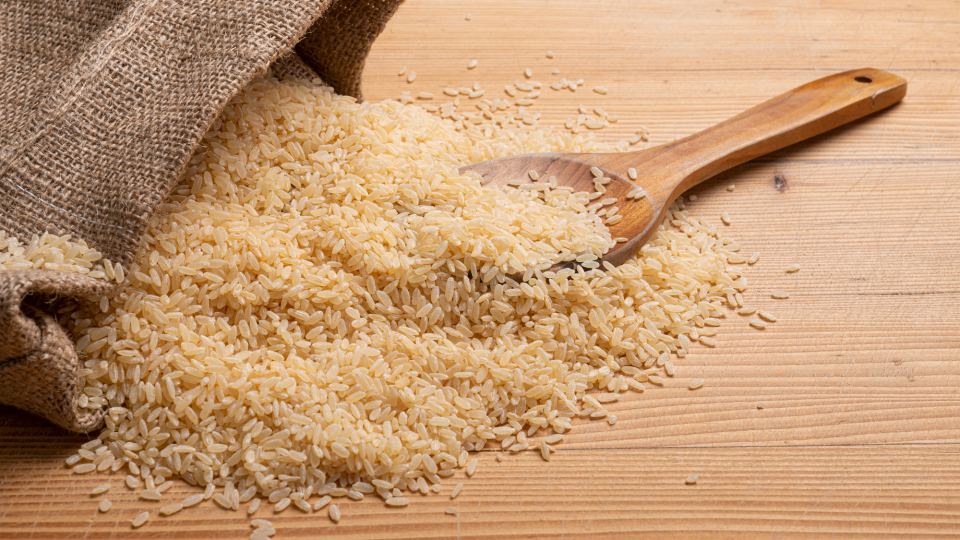
Try something new the next time you cook by swapping white rice for brown. It is high in fibre - which aids in digestion and helps maintain a healthy weight - while also being a good source of magnesium and phosphorus, essential for bone health and reducing the risk of osteoporosis. Additionally, the grain provides complex carbohydrates, helping to maintain stable blood sugar levels and reducing the risk of type 2 diabetes.
21. Eggs
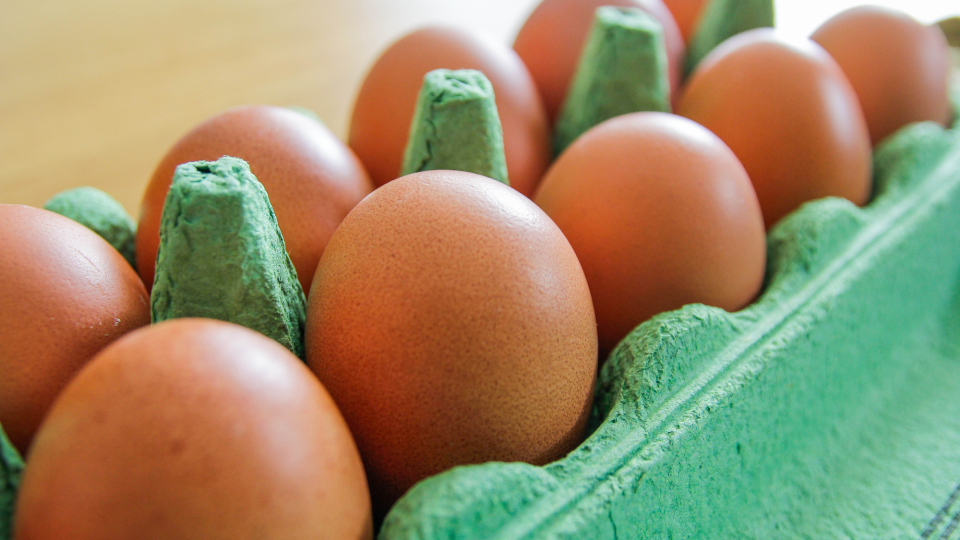
Eggs are a great source of high-quality protein, essential for maintaining muscle mass and supporting overall metabolic health. They also provide important nutrients like vitamin D - which aids in calcium absorption for bone health and reduces the risk of osteoporosis - and also contain choline, crucial for brain function and memory, and are rich in vitamin B12, which supports energy levels and nerve function.
22. Brussels sprouts
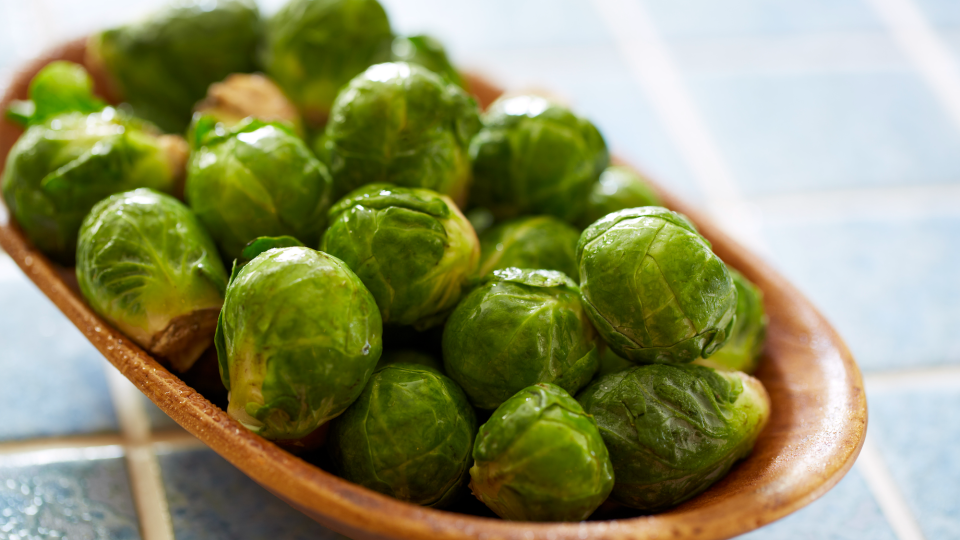
Forget the festive associations of Brussels sprouts - they are an important component of a post-menopausal diet. The vegetable is rich in vitamin K, which supports bone health and reduces the risk of fractures and also provides plenty of vitamin C - an antioxidant that boosts immune function and supports collagen production for skin health. Additionally, they are a good source of fibre, aiding in digestion and promoting a healthy gut.
23. Barley
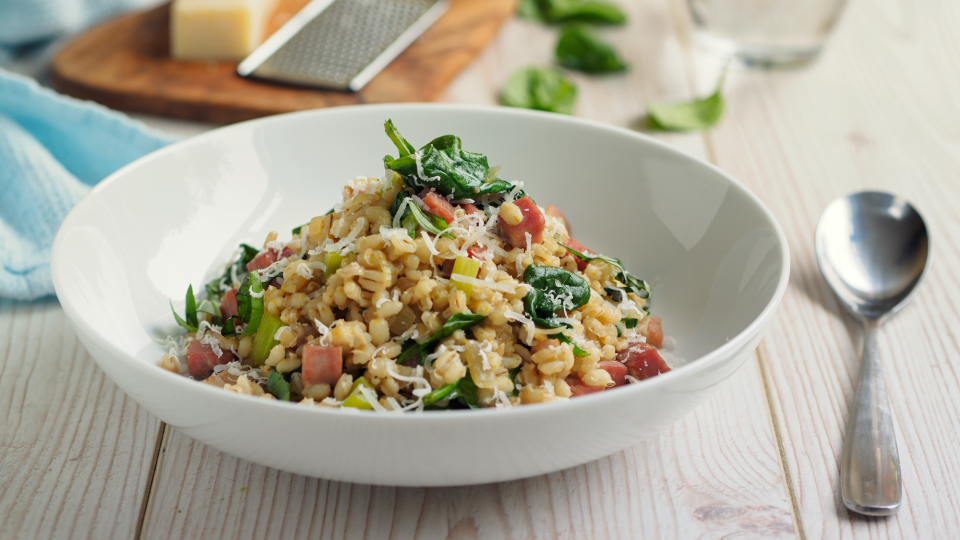
Barley is high in dietary fibre - which aids in digestion, promotes satiety and helps regulate blood sugar levels. What's more, the grain also contains beta-glucan, a soluble fibre that helps lower cholesterol levels and supports heart health. It is, similarly, rich in magnesium and phosphorus, essential minerals for bone strength and maintenance, reducing the risk of osteoporosis.
24. Hemp seeds
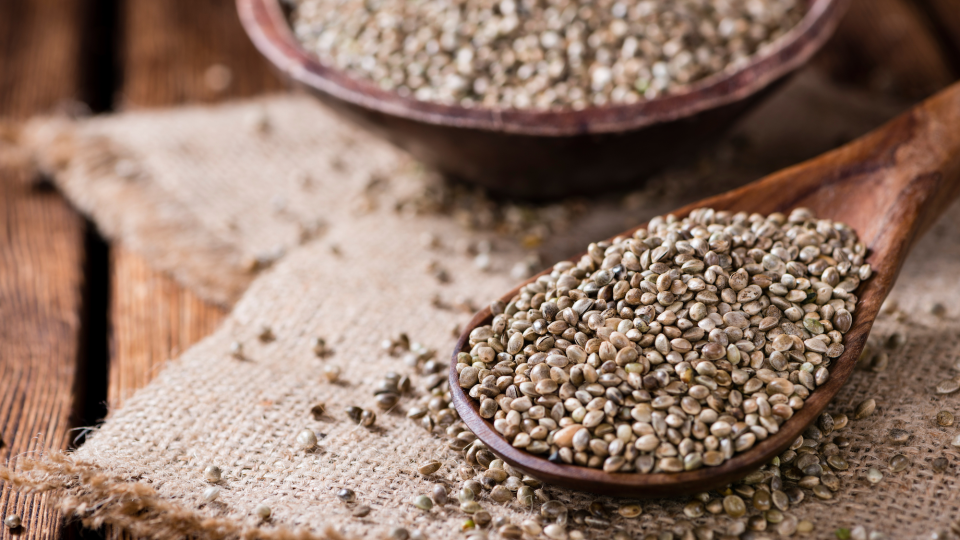
Sprinkle hemp seeds on your yoghurt or salad. They are a complete protein source, containing all essential amino acids necessary for muscle maintenance and metabolic health. What's more, they are rich in omega-3 and omega-6 fatty acids - which support heart health and reduce inflammation - and provide an excellent balance of soluble and insoluble fibre, aiding in digestion and promoting a healthy gut microbiome.
25. Soy milk

Soy milk is an ideal milk alternative for women to consume after menopause. The drink is a rich source of plant-based protein, which supports muscle maintenance and overall metabolic health. It also contains phytoestrogens called isoflavones, which may help alleviate menopausal symptoms such as hot flashes and support bone health by mimicking the effects of oestrogen. Look out for options fortified with bone-strengthening calcium and vitamin D.
26. Flaxseeds
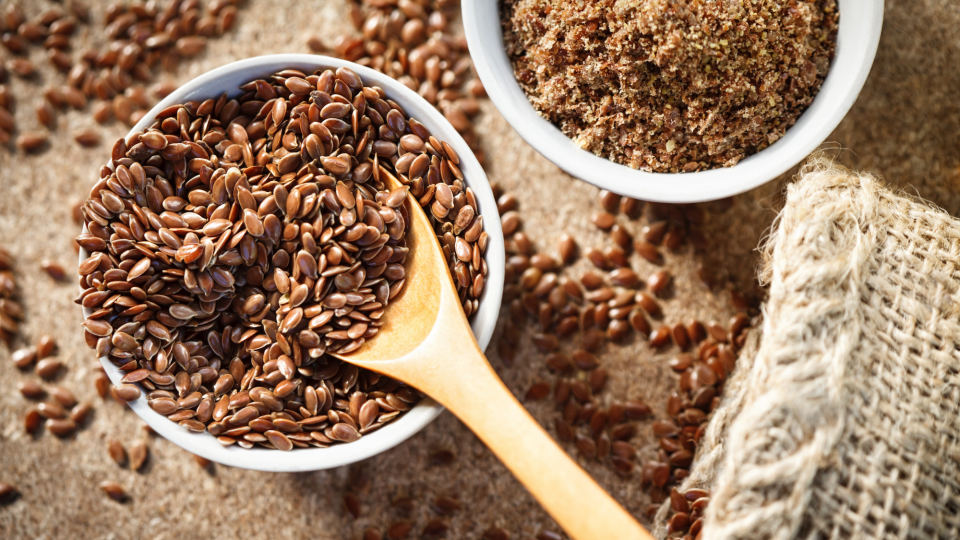
After an easy way to boost the nutritional profile of your smoothies and porridge? Just add some flaxseed. It is rich in alpha-linolenic acid, a plant-based omega-3 fatty acid that supports heart health and reduces inflammation; and it's also high in fibre, which aids in digestion and helps regulate cholesterol levels. Similarly, they contain lignans - phytoestrogens that may help balance out hormone levels.
27. Mackerel
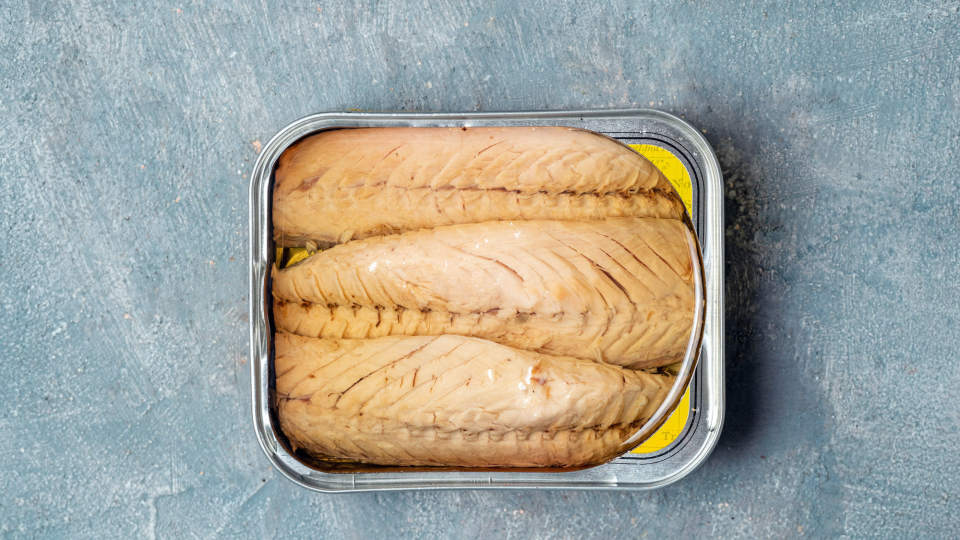
Mackerel is high in omega-3 fatty acids, which support heart health, reduce inflammation and may alleviate symptoms of depression and anxiety. The oily fish is a good source of protein - essential for muscle maintenance and metabolic health - and provides vitamin D, crucial for calcium absorption and bone health, which helps prevent osteoporosis.
28. Yoghurt
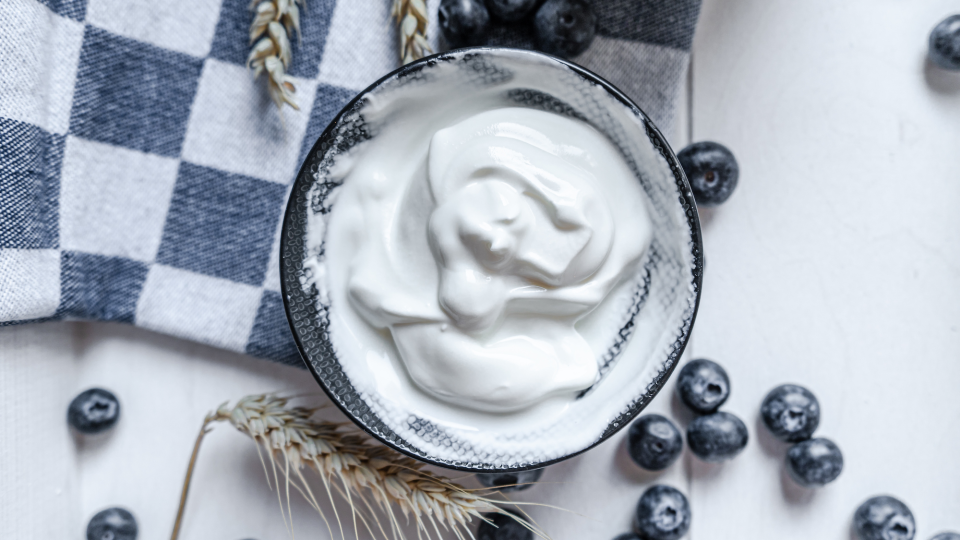
You can't go wrong with yoghurt, either to start your day or as a snack. The dairy essential is a good source of calcium and vitamin D, crucial for maintaining bone health and reducing the risk of osteoporosis. It also contains probiotics - beneficial bacteria that support gut health, aid digestion and boost the immune system - and is a rich source of protein, which helps maintain muscle mass and supports metabolic function.
29. Whole wheat bread
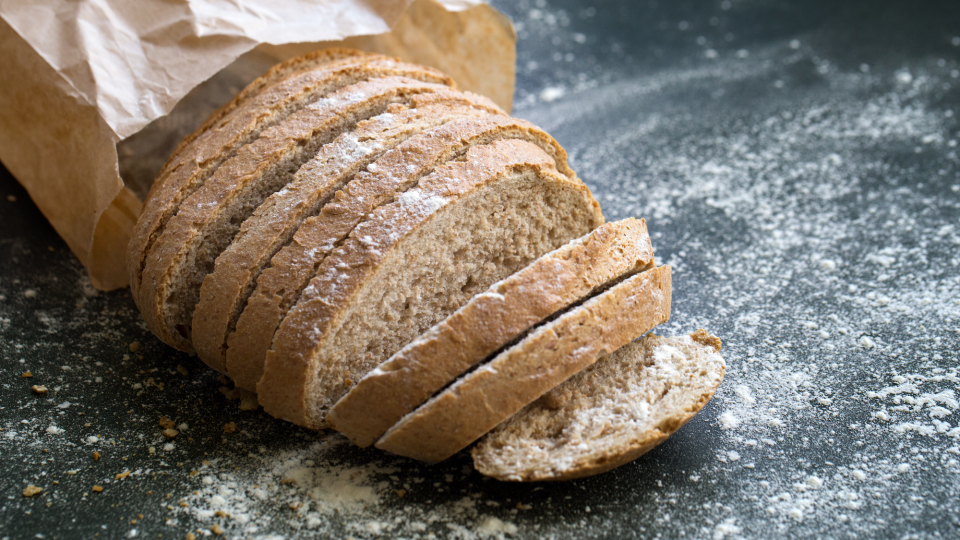
Whole wheat bread is high in dietary fibre - which supports digestive health, helps manage weight and regulates blood sugar levels. Swapping it in to replace white varieties, will also provide essential vitamins and minerals, including B vitamins that support energy metabolism and cognitive function. It is also a complex carbohydrate that provides sustained energy and helps maintain satiety.
30. Salmon

Load up on salmon in your fridge. It is a plentiful source of omega-3 fatty acids, which support heart health, reduce inflammation and may alleviate symptoms of depression and anxiety. The oily fish is also a good source of high-quality protein, essential for muscle maintenance and overall metabolic function, and provides vitamin D - crucial for calcium absorption and bone health, helping to prevent osteoporosis.
31. Anchovies
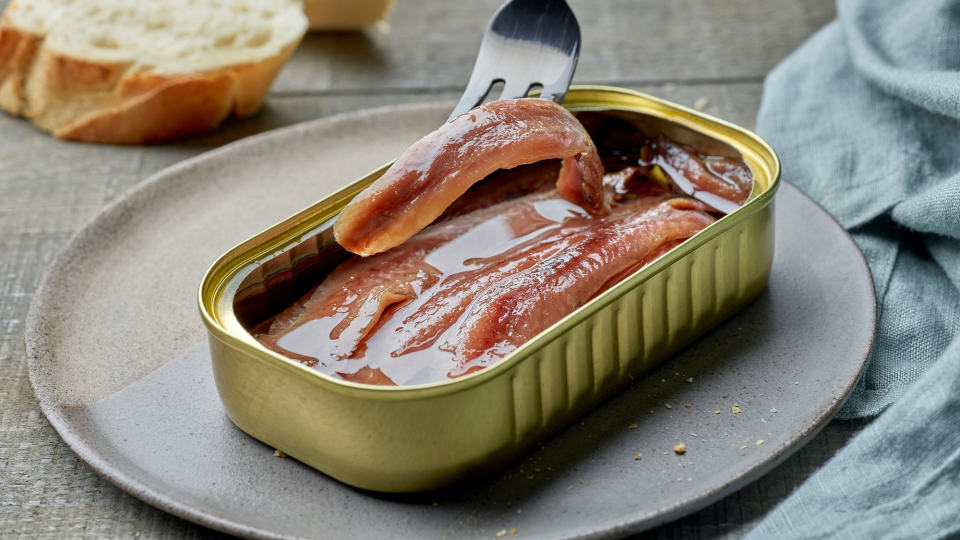
Anchovies are rich in omega-3 fatty acids - which support heart health, reduce inflammation and may help alleviate symptoms of depression and anxiety. The oily fish also provide calcium and phosphorus - important minerals for bone health and reducing the risk of osteoporosis - and it's rich in vitamin B12, which is crucial for energy production and nerve function.
32. Milk

Adding milk to your coffee or tea is a wise idea. It is a primary source of calcium and vitamin D, crucial for maintaining bone density and reducing the risk of osteoporosis, and also provides high-quality protein - which supports muscle maintenance and overall metabolic function. Additionally, it contains vitamin B12, essential for nerve function and energy production.


